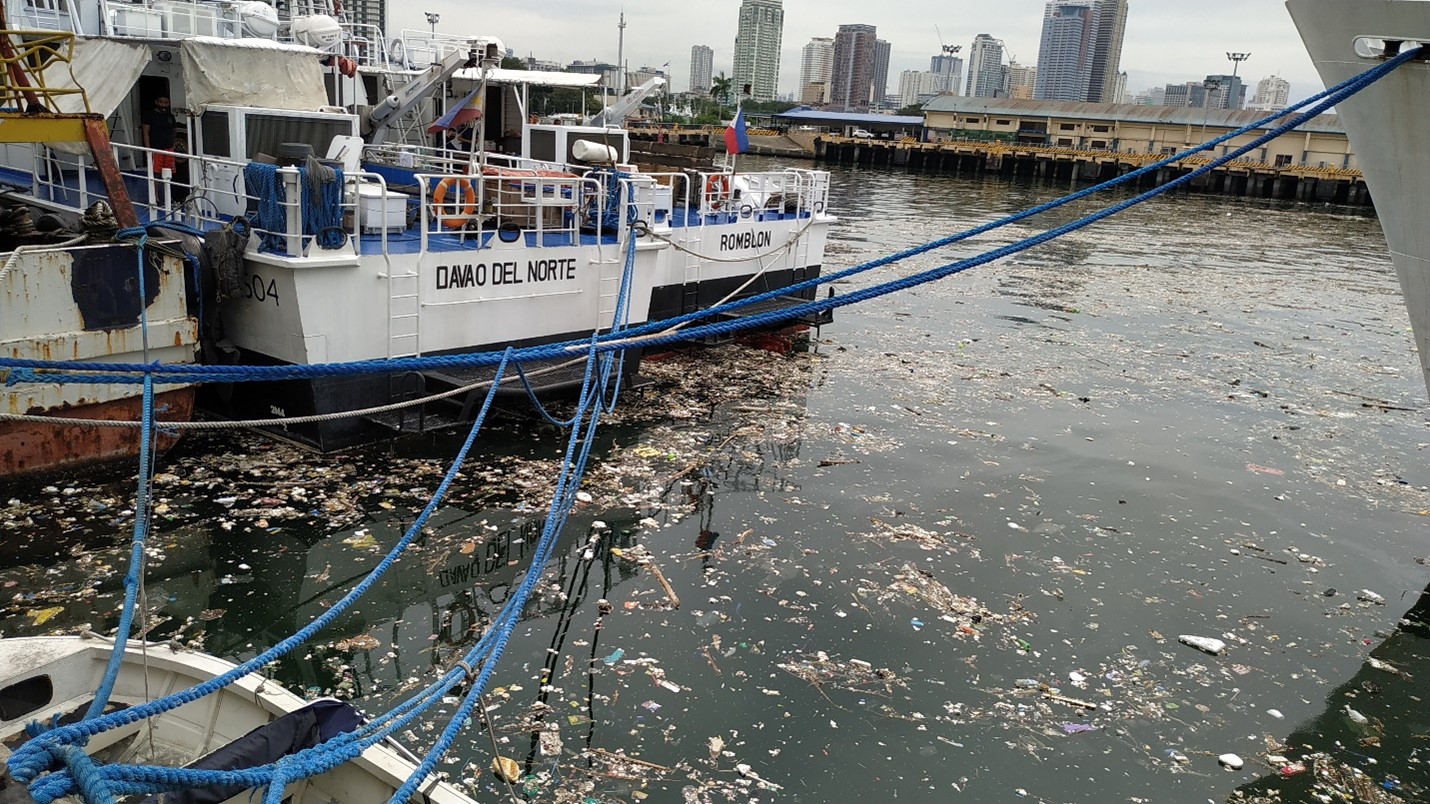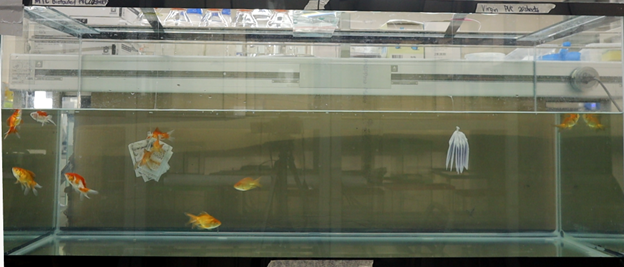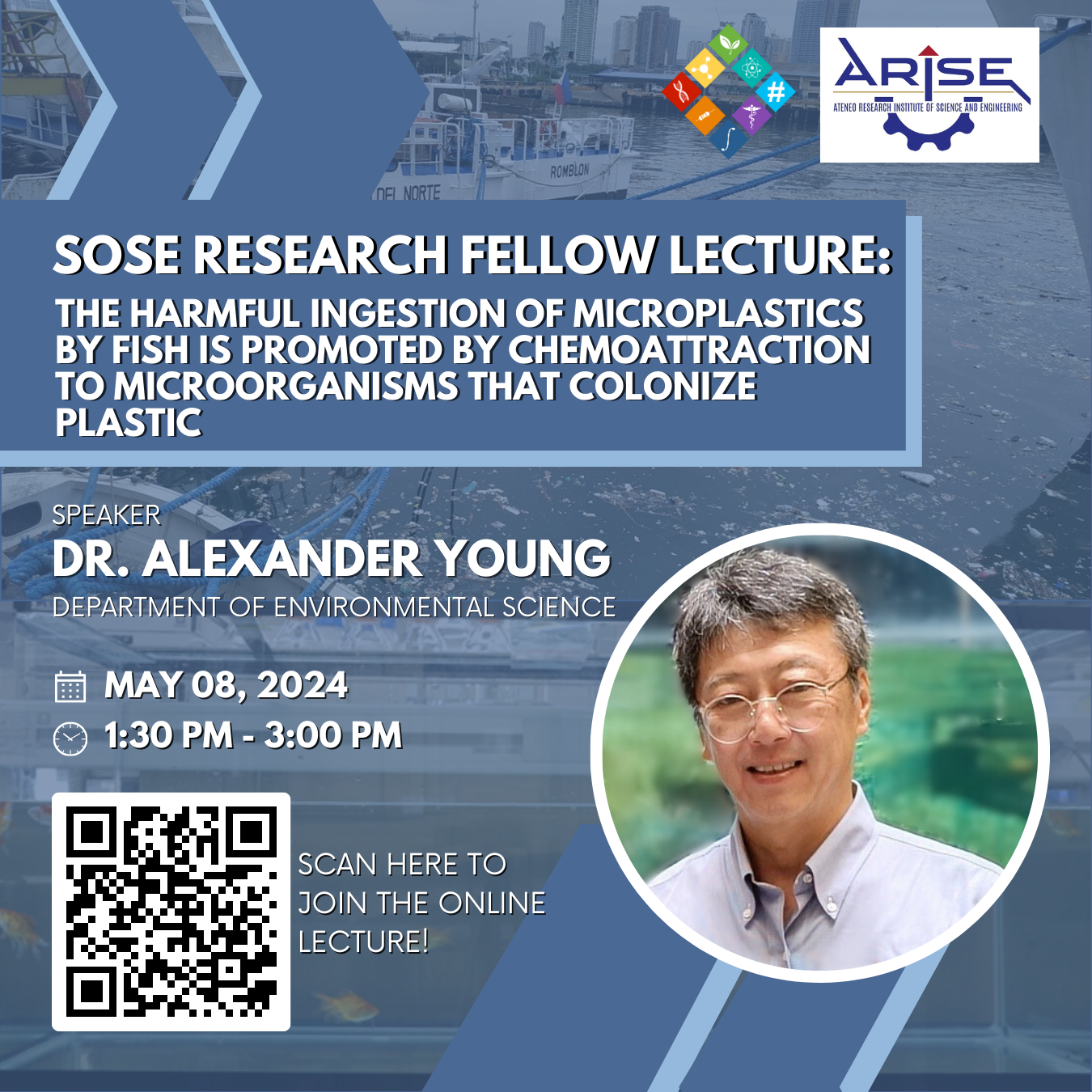The harmful ingestion of microplastics by fish is promoted by chemoattraction to microorganisms that colonize plastic
The School of Science and Engineering warmly extends an invitation to Dr. Alexander T. Young's lecture, a research fellow in the Department of Environmental Science. His presentation, "Chemoattraction in Fish to Microorganisms on Plastic: A Catalyst for Microplastic Consumption," will take place virtually on Zoom. Join us on Wednesday, 8 May 2024, from 1:30 PM to 3:00 PM, through this link or by scanning the QR code on the poster.
Abstract
The Philippines has been rated the highest polluting country in the world for ocean plastics. Both cultural and government practices contribute to riverine plastic input into Philippine seas, famous for having the highest marine biodiversity in the world. To understand both short-term and long-term effects of Philippine plastic pollution, plastic distribution throughout the port area of Manila Bay was studied. We also wondered why many marine organisms such as fish are known to harmfully eat microplastics when fish do not like the taste of plastic. We demonstrate that the colonization of ocean plastics by microorganisms such as bacteria and algae promotes the feeding of microplastics by fish through chemoattraction.


About the author
Dr. Alexander Young is a Research Faculty member of the Department of Environmental Science. He moved to the Philippines from the United States and switched careers from the biomedical sciences to environmental sciences specifically to study coral reefs. Previously Dr. Young was a biotechnology venture capitalist and scientist having developed drugs and genomics-based drug discovery strategies for biotech and pharmaceutical companies in the USA, Europe and Asia including Merck, Bayer, BASF and Takeda Pharmaceutical. Dr. Young helped elucidate the MAP kinase signal transduction pathway and its contribution to the etiology of cancer, founded a gene therapy company, cloned human alpha interferon genes, cloned Hepatitis A virus to make subunit vaccines, helped determine the first genomic sequence of a human virus, and led the scientific team that brokered a $465 million genomics-based drug discovery alliance between Bayer AG and Millennium Pharmaceuticals, voted to be one the “Ten Deals That Changed Biotech”. Dr. Young received his PhD in Medical Sciences (Virology) from Harvard University and his BA in Biochemistry from Cornell University.


